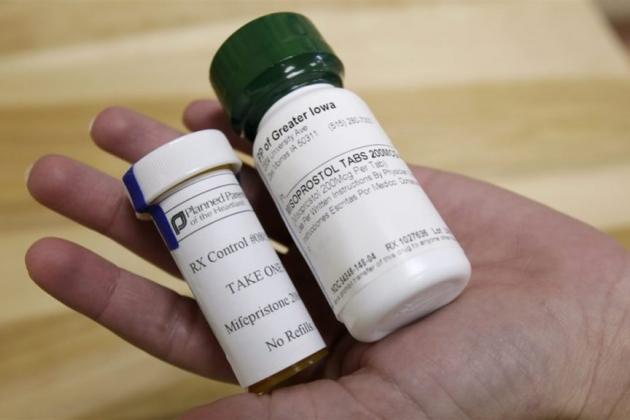
Yukoners hoping to access abortion will now have an alternative that will be fully covered by the territorial government, thanks to a partnership with the Yukon Hospital Corp.
It comes after the territory began rolling out universal coverage of Mifegymiso on Wednesday. It’s a measure the government hopes will reduce the barrier to accessing abortion medication.
Those interested will have four main hubs to choose from, with full-time resident physicians prescribing the medicine out of Haines Junction, Dawson City, Watson Lake and Whitehorse.
That means somebody living in other communities where services are not being offered will need to travel to the closest hub.
“The decision to provide coverage is about providing better service for Yukon women,” Health and Social Services (HSS) Minister Pauline Frost said Wednesday, noting that it’s also expected to lead to a decrease in overall health costs.
“By providing coverage of the medication, we are allowing Yukoners to make the choice that is right for them, regardless of the cost.”
According to the department, the costs of that are as follows: the pill will be substantially less than a surgical procedure, setting a woman back by about $300.
The alternative can range between $1,200 and $1,400, which includes the doctor’s fee, anesthesiology and operating room costs.
Coverage of the medication is also a long time coming and will help put the territory on par with other jurisdictions across the country, the minister told the legislature Wednesday.
With the territory seeing upwards of 110 abortions per year, Frost explained that “during my time here, it’s come to my attention that it’s a priority for Yukoners.
“Right now, the only way of abortion is very intrusive,” she later added.
The territory is the eighth jurisdiction in the country to offer coverage for the drug so the announcement was welcome news, said Sandeep Prasad.
Serving as the executive director with Action Canada for Sexual Health & Rights, Prasad explained this morning that offering coverage does not necessarily mean more women will begin looking at terminating pregnancies.
In fact, through his work, he estimates the split between those seeking medical and surgical options in areas where both have been offered for a longer period of time sits at about 50-50.
An additional barrier to accessing the drug was who Health Canada permitted to prescribe it.
The drug was approved by Health Canada in mid-2015 and became available to the public in 2017.
Initially approved to be prescribed up to seven weeks (49 days) into a pregnancy, Ottawa approved it an additional two weeks in late 2017.
Health Canada also permits patients to take the medication either at home or a health facility, as directed by a professional.
As per federal regulations, those prescribing are required to have “appropriate knowledge” about it beforehand.
Health Canada notes that while education programs are available, professionals are no longer required to complete it before they can prescribe the drug.
An HSS spokesperson, meanwhile, confirmed this morning that requirements and procedures for prescribing the drug in the territory are set by Health Canada.
“The training that is required (now) is basically self-studying,” Prasad said, noting that doctors are encouraged to read up and exercise sound judgment when prescribing the combination drug.
“That doesn’t require formal training or courses as Health Canada once did require, but it can be done.”
Prasad noted his group has a 24-hour access line that receives calls from all over the country from those seeking abortion but don’t know where to go to access it.
He explained that anecdotally, some callers say their doctors can’t prescribe it because they haven’t done the mandatory training (which Health Canada had since revised).
“That’s a big piece of misinformation that’s out there,” he said, which his organization and others with the help of governments are trying to curb.
Prasad’s statements were echoed in part by Stephanie Buchanan, a general practitioner in the territory who is involved in women’s health care.